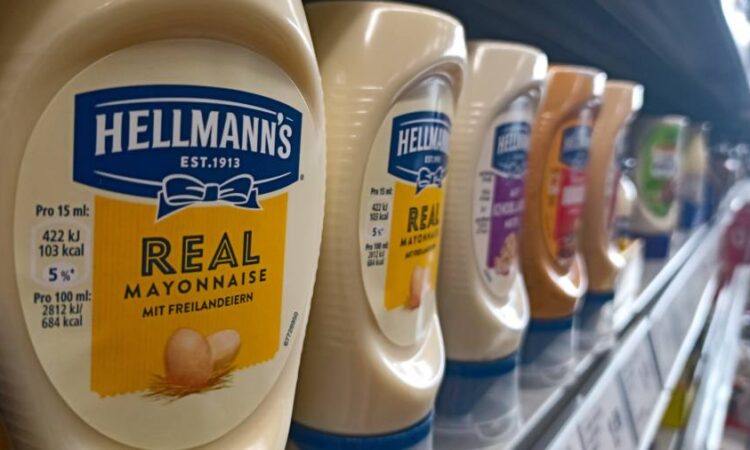
Shoppers and retailers in Europe are less willing than their US counterparts to pay higher prices for a range of consumer goods, according to industry executives, analysts and economists.
Figures from companies including Unilever, which makes products including Hellmann’s mayonnaise and Vaseline, and Procter & Gamble, whose brands include Ariel detergent and Pampers nappies, showed sales volumes in Europe last quarter were weaker than in the US.
Consumer goods manufacturers have put up prices around the world to try to offset historic increases in the cost of raw materials. Both Unilever and P&G raised prices on average approximately 10 per cent last quarter.
Shoppers’ sensitivity to changes in prices — known as elasticity — varies considerably by product and local market, and not every company has reported lower volumes in Europe.
However, weaker household finances in Europe had generally made it more difficult to charge more without sacrificing volume, several executives said. Consumers also tended to be more willing to switch to cheaper supermarket own-brand alternatives in Europe, where the “private label” market is more developed than in the US.
“We are seeing higher price elasticities in Europe,” said Graeme Pitkethly, finance director at Unilever. Volumes at the UK-based maker of Magnum ice cream bars and Dove soap fell 3 per cent in Europe but were up 0.6 per cent in the Americas, despite similar price increases in both regions.
Pitkethly noted the prevalence of discounters such as Aldi and Lidl in Europe. He said private label products were making “some inroads” in some product categories in the continent, particularly ice cream.
Andre Schulten, Procter & Gamble’s chief financial officer, said “inflation pressures in Europe weighed more heavily on consumption” during the quarter.
Macroeconomic data shows households in Europe have faced steeper price increases than in the US over the past year. Eurozone headline inflation peaked at 10.6 per cent in October and last month remained persistently high, at 6.9 per cent. By contrast US inflation topped out at 9.1 per cent last June, and has now subsided to 5 per cent.
“Europe continues to be a high-pressure environment,” added Schulten, who also said European consumers were “trading into private label” products.
P&G, whose portfolio includes Gillette razors and Head & Shoulders shampoo, said sales volumes declined 7 per cent in its main markets in western Europe, whereas they were in “modest” positive territory in the US.
Even so, the company’s organic sales rose 8 per cent in those western European markets and 6 per cent in the US. Schulten said P&G’s “consumer markets remained relatively resilient” globally.
Martin Deboo, consumer goods analyst at Jefferies, said retailers in Europe also could exert “more negotiation pressure” on consumer goods companies than in the US.
He cited the bargaining power of supermarkets such as Tesco and J Sainsbury in the UK, Ahold Delhaize in the Netherlands and Carrefour in France.
Bruna Skarica, economist at Morgan Stanley, said: “It has been easier for companies to pass through price increases to consumers in the US”, where demand is stronger.






